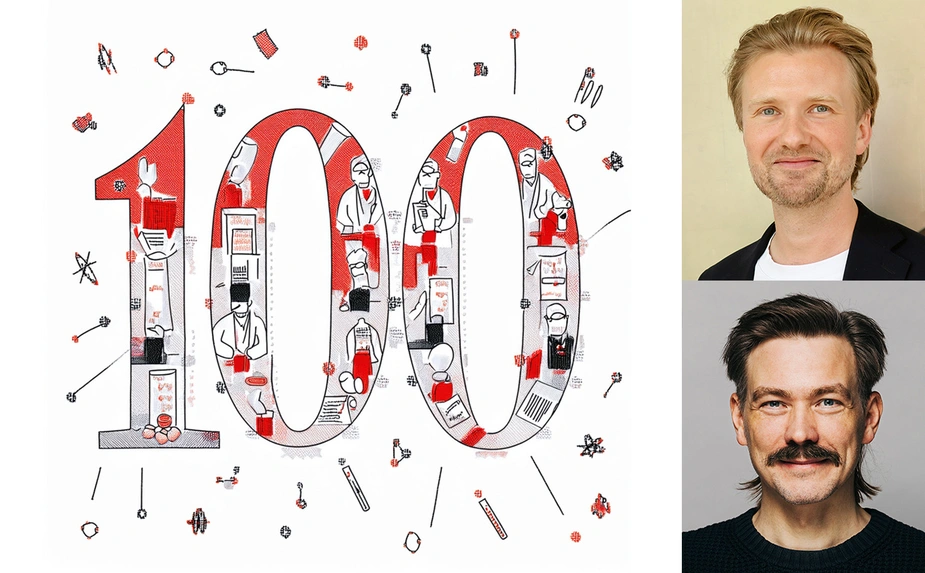Markus Krutzik and Tim Schröder among the 100 most important minds in science 2025
Quantum researchers from the Ferdinand-Braun-Institut honoured by Tagesspiegel newspaper
Markus Krutzik and Tim Schröder have been named among the 100 most important figures in the Berlin science community for 2025. Through their work in quantum sensing and quantum photonics, they make crucial contributions to future key technologies – ranging from precision measurement methods to the quantum internet. The award, initiated by the Berlin newspaper Tagesspiegel, honors outstanding research, dedication to teaching and knowledge transfer, as well as exceptional contributions to science communication. Both researchers from the Ferdinand-Braun-Institut (FBH) are profiled in the Tagesspiegel’s science special.
Markus Krutzik: research in integrated quantum sensing
At FBH, Markus Krutzik heads the Joint Lab Integrated Quantum Sensors and is Professor of Integrated Quantum Sensing at Humboldt University of Berlin. Together with his team, he is developing the next generation of chip-scale quantum sensors, enabling ultra-precise measurements both on Earth and in space.
His scientific work spans extensive national and international collaborative projects with partners from research and industry. He also co-initiated Berlin’s first Quantum Technology Hub, which he continues to support as a scientific advisor. Another focus of his efforts lies in technology transfer: to bring research results into practical applications, he co-founded a start-up, with another one currently in the planning stage.
Tim Schröder: research for the quantum internet
Tim Schröder is Professor of Integrated Quantum Photonics at Humboldt University of Berlin and leads the Joint Lab Diamond Nano Photonics at FBH. With his international team, he investigates nanophotonic structures in diamond and semiconductor materials for quantum communication and quantum information processing – the key building blocks of a future quantum internet.
His research is supported by highly competitive funding programs, including Starting and Consolidator Grants from the European Research Council (ERC), as well as Germany’s BMFTR Grand Challenge for Quantum Communication program. In addition to research and teaching, he is deeply engaged in science communication, offering insights into quantum photonics through formats at the University of the Arts, the Goethe-Institut, and on radioeins.
Contact:
Ferdinand-Braun-Institut gGmbH,
Leibniz-Institut für Höchstfrequenztechnik
Gustav-Kirchhoff-Straße 4, 12489 Berlin
+49 30 6392-2600
pr(at)fbh-berlin.de
www.fbh-berlin.de
FBH press release, 29.09.2025
